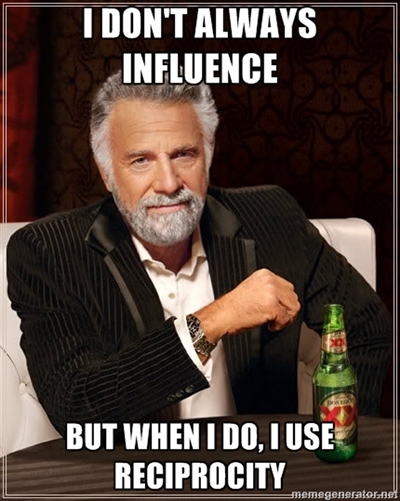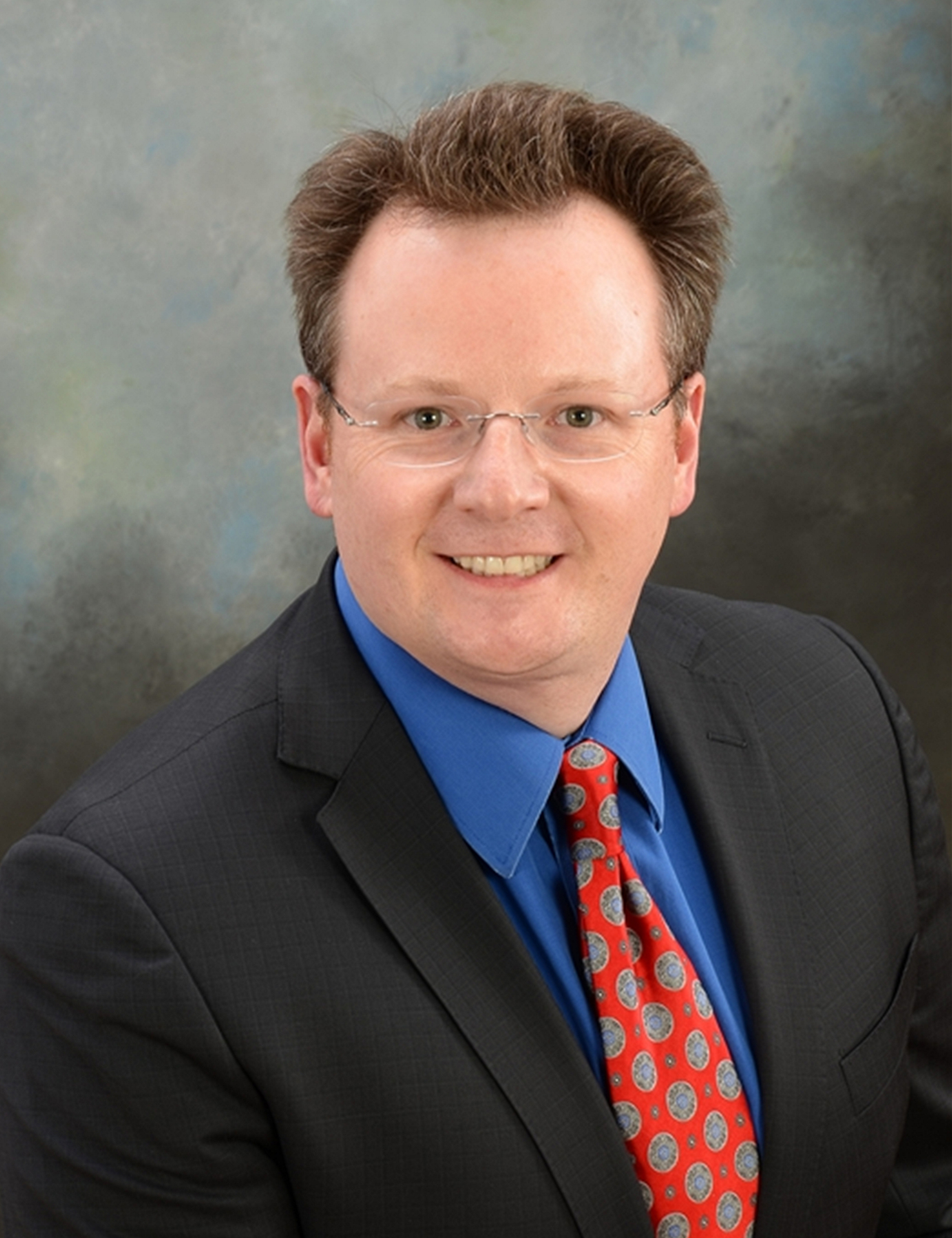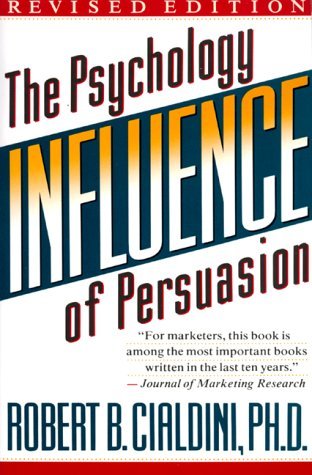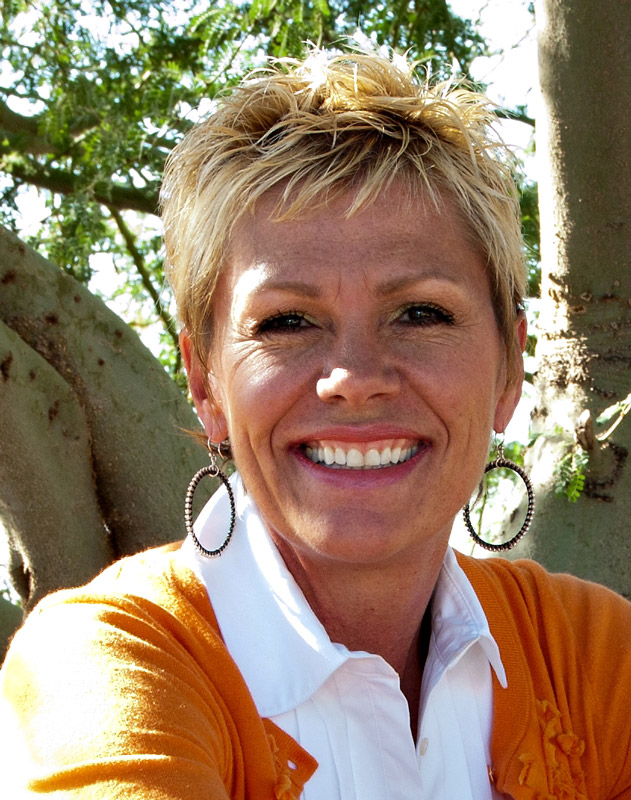by Karah Karah | Sep 14, 2015 | Magnificent Marketing
Podcast: Play in new window | Download
Quotes & Notes:
- “All things being equal we, like to do business with our friends. All things not being equal, we still like doing business with our friends,” Jeffrey Gitomer.
- We want to do business with people we like. We also like to do business with people like us.
- One of the things you want to do from a dental example is don’t take the similarities we have between them for granted.
We want to do business with people that like us.
- The best dental example I can give for liking is it all matters in that first meeting.
- If you want to get your teams to work together better, to be more of a team, to like each other better, this principle works in that way. Get them to find similarities together and bring them to the surface; that will get them to build their liking and cooperation together.
- You’ve got to bring them together as a team and make it, if you don’t do this, this is going to happen, and they will unite and rally together to overcome that obstacle.
Be sure to check out the next episode about social proof with Dr. Phelps which will air tomorrow.
If you enjoyed this episode, we would love a 5-star review on iTunes:

by Karah Karah | Sep 14, 2015 | Magnificent Marketing
Podcast: Play in new window | Download
Quotes & Notes:
- Reciprocity is one of those universal concepts we talk about, which is so powerful because of how societies were built. Someone had to give first, and then guess what? Other people reciprocated and they gave back.
- It is something so ingrained in us that it is part of our nature, we just can’t help it.
The principle states that if somebody gives you a gift of value, then we in turn, there’s a lot of indebtedness that we feel that we have to return the favor.
- Many times when I am talking to doctors and I say gifts versus rewards, they get the two concepts mixed up.
- There are certain things, especially where it is illegal in pretty much every state, to reward our patients for anything.
Gifts have to be unexpected, number one, but they have to be significant or valued to that person.
- The other mistake I see them make, is they usually give that gift at the beginning of the appointment, but then we don’t ask them for something until when? The end of the appointment.
The person that gives has to be the person that asks for something.
- What I do with these gift cards, that’s the gift I give. It’s unexpected and who doesn’t value free food and drinks?
Be sure to check out the next episode about liking with Dr. Phelps which will air tomorrow.
If you enjoyed this episode, we would love a 5-star review on iTunes:

by Karah Karah | Sep 12, 2015 | Magnificent Marketing
Podcast: Play in new window | Download
Quotes & Notes:
- While it didn’t make it an original principle, I honestly feel that if he rewrote the book again, it would be the seventh principle of influence because it is so powerful and it is always present in any situation.
You can change the way anyone experiences something by controlling what they experience first.
- The big overriding lesson I want you to understand, if we want more case acceptance using contrast, we have to take them down the stairs. What takes more energy, walking up the stairs or walking down the stairs?
The second rule, which I like to tell people, is that you have to careful when the price is a big deal for someone, is a concern.
- In contrast, people always compare every number you throw at them with something else.
- We must control what the patient is going to compare our fee or service to. Otherwise, if we leave it in their control, they are going to compare it to something that they know in their home life and you are going to get shut down early.
- By making small little changes like that, and changing what they anchor into first will lead more people to say yes to what you are really asking for today.
Be sure to check out the next episode about reciprocity with Dr. Phelps which will air tomorrow.
If you enjoyed this episode, we would love a 5-star review on iTunes:

by Karah Karah | Sep 11, 2015 | Magnificent Marketing
Podcast: Play in new window | Download
Quotes & Notes:
- Everybody needs a coach, no matter how successful you are. For me, my best coach has been something called the Strategic Coach.
- From a clinical side, there is very little I don’t do. But now I focus my time, because I have two offices and six doctors that work for me, so the patients I get are bigger cases. So my time in the clinic is more productive.
- When I heard Dr. Cialdini speak for the first time, I had another one of those moments, like holy crap, this is the answer. And I have to go learn the answer, and this guy has it figured out.
- The thing I love about this stuff (Dr. Cialdini’s research) is number one it is based in science.
Dr. Cialdini, what he did, is he figured out these principles which are so suddenly simple but yet so powerful.
- The powerful thing about it is that it works no matter what. The key to remember is that it is a universal concept; these six key principles are present no matter what society you’re from, what culture you grew up in, what part of the world you grew up in, they still apply.
- We’re looking for the first satisfactory clue or indication to make a good decision, and this decision basically has to have two criteria. It’s got to be a good decision, and it has got to be gone, meaning once we make it we don’t have to circle back around and deal with it again.
- We as clinicians and business owners, we have to be very careful about how we use these things. Because we have to protect our credibility and our authority with our patients in our practice.
- We try to recommend you be in all three of these areas, then you know you are safe and totally ethical in whatever it is you are trying to use the principle for: Is it true? Is it natural to the situation? Is it a net win-win for both parties?
- There are seven things we are going to talk about, the first of which isn’t really a principle, but it is a powerful phenomenon called the contrast phenomenon.
- Then we will dive into the six principles of influence:
- reciprocity
- liking
- consensus or social proof
- authority
- consistency
- scarcity.
Be sure to check out the next episode in the series with Dr. Phelps, which will air tomorrow.
If you enjoyed this episode, we would love a 5-star review on iTunes:

by Karah Karah | Sep 4, 2015 | Bold Biographies
Podcast: Play in new window | Download
Quotes & Notes:
- My office is small, I do small numbers, and I like it that way.
- Just listen. Just listen. Could that apply to dentistry, maybe? Could that apply to being a better husband, better father?
- This particular situation (of stress to do well in dental school) was much of my own making, because I was just not good at coping with it.
Dental school was a formative part of my personality, and I clearly was scarred from it.
- I tell you that I got no perspective, and I am an emotional freak about school and I take everything personally, but I found something that made me feel better, and that was drinking.
- I had heard about opiates (Vicoprofen) giving you a buzz, so I tried some. And I realized right then and there that this was what I was missing.
- My habit took off, that’s how I coped with everything.
- I got married in September 2001, and essentially I don’t remember much of that until January 2002. It was just sort of this blur.
- I had tried so many times to stop myself, and I was intervened by my family. I just gave up right there and then. I couldn’t stop by myself and I was too embarrassed and scared to tell anyone.
I always think that I need an outlet to spend my time on. Podcasting happens to be it right now.
- It’s a struggle to get people who have troubles to even admit that this is a problem. If you are having trouble, or you are worried that you are having problems, you need to talk to someone.
If you would like to talk with Dr. Alan Mead, you can reach him at his email [email protected], even call his cell phone (989) 859-6302. Also, feel free to check out his podcast DentalHacks podcast at dentalhacks.com. Check out his official blog at meadfamilydental.com and the bloggingdentist.com.
If you enjoyed this episode, we would love a 5-star review on iTunes:

by Karah Karah | Aug 29, 2015 | Bold Biographies
Podcast: Play in new window | Download
Quotes & Notes:
- “Courage is the resistance to fear, mastery of fear, not absence of fear” ~Mark Twain.
- Of course, I kind of wanted to be a real doctor, because I was going to dental school. And then I look at the hours…so I said you know what, I am going to check out this dentistry thing.
- For me I felt like there was something inside of me that felt like I had to earn it, and for it to be my own plan (of owning my own practice).
I think that is a mindset that we all have an issue and we are afraid to stand out and afraid to be wrong.
- For me, it almost happened simultaneously. Clinically, as developed the clinical skills, I also developed being a promoter of the practice.
- If you have a really clear vision of what it is you want, and then you figure out a way to overcome that fear. You know I tell my team members, once we get people in here and they see what we are really about, what we are passionate about, the rest kind of takes care of itself.
Really learning how to communicate, making the connection with the patient, that is what really matters.
- Everybody deals with the same stuff. It’s just how you handle that stuff that really determines where you are and where your practice goes.
- Anytime you make a decision, sit down and look at if that decision is taking you closer or farther away from the ultimate goal?
- You have to stop playing the game of when, and ask yourself, why not now?
- Dr. Eric Jones would suggest every dentist read Start with Why by Simon Sinek.
If you would like to learn more from Dr. Eric Jones, you can find him on Dental Town or go to drjonesspeaks.com.
If you enjoyed this episode, we would love a 5-star review on iTunes:

by Karah Karah | Aug 21, 2015 | Magnificent Marketing
Podcast: Play in new window | Download
Quotes & Notes:
- I do think it is a trend [of digital marketing] that will continue and I do think it is a national trend.
- If you really want to do it right, you really should track it.
- It’s useful to have a website so your patients can download forms so that they can have a very easy way to contact you. People have an expectation you will have a website or some way to contact you.
- Websites are kind of viewed as a piece of technology and a bar of professionalism. It’s like you hand print your business cards on your home printer. You could have a state of the art office, everything could be beautiful, but you cheap out on the business cards.
Take a smartphone, and bring up your office’s website. It should at least function. You should be able to navigate the site and click links. If you have flash you need to change that ASAP.
- All the sites we make are responsive, which means they will adapt to a smaller screen. If you want to impress them or convert someone who is doing research, you want to update to something that is responsive.
- Anything that you can promote that will positively impact the impression of the practice [should be put on social media].
- There are two kinds of ways that your practice will appear on google search results and one of them is the local results. Part of the algorithm is the number of reviews and the quality of reviews that you have.
- One thing we want them [clients] to do is have a video for every single service or procedure that they provide. And what we want them to tell patients is what is their unique training for this? What are the special materials they use?
- The other two bits of content that we’ll twist our clients’ arms is a little bit are pictures and copywriting.
If you would like to learn more from Jeff Gladnick, you can go to greatdentalwebsites.com, call his company with (415) 814-0078, or email him at [email protected]. You can also find him on Dental Town.
If you enjoyed this episode, we would love a 5-star review on iTunes:

by Karah Karah | Aug 14, 2015 | Bold Biographies
Podcast: Play in new window | Download
Quotes & Notes:
- Whether you think you can or you think you can’t, you’re right.
- The possibility of being more of an entrepreneur as a dentist was really what made me go that direction [of being a dentist].
- There are a lot of different models in dentistry. I think one of the more popular models is to build your practice the first few years to a comfortable size and then basically maintain that exact practice for 30 years and then retire. For me, I just sort of push into the next level every year and try to do something new and different.
- I found a good, nice visible location, and then had a marketing plan in place, made it into a nice attractive practice, had smart insurance participation. A lot of planning went into it to make the practice look different from the rest of the practices out there.
For the dentist that is struggling to get into ownership, one of the things that I have learned over the years is pursue multiple paths at the same time.
- In my career, the two points of frustration were definitely when I first graduated residency and did not have a very successful associateship path and during my first startup, I really learned a lesson. I found this area that had high demand, but they’re really weren’t commercial spaces available.
- What are you scared of? The little old lady who has been wearing her dentures for decades and just wants a nice replacement.
- What have been the main barriers to your success? Mainly mindset, what’s in between my two ears.
- Go out there find the dentists that you want to spend time with.
- Dr. Graham Dersley would recommend that every dentist read How to Win Friends and Influence People by Dale Carnegie, as well as The Goal by Eliyahu M. Goldratt and Jeff Cox.
If you would like to learn more from Dr. Graham Dersley, you can reach him with his email, [email protected] or even on Dental Town. If you would like to learn more about the meeting you can go to practiceonfire.com where you can also register.
If you enjoyed this episode, we would love a 5-star review on iTunes:

by Karah Karah | Aug 7, 2015 | Hints for Happiness
Podcast: Play in new window | Download
Quotes & Notes:
- There is lots of research out there to support that happier people are more productive, more successful, they are actually smarter, more creative, and they are healthier.
- When I work with teams, probably the most important thing that I work with is shifting their mindset on ownership of the culture (the happiness culture): that each one of them is a part of that culture and they own that.p
We have to understand that happiness is our choice.
- Someone does not create our happiness for us. Situations, circumstances, or people don’t have that power over us.
- If someone comes in and they are in a bad mood and we let them bring our energy to their level, that’s who’s going to control it, that’s who has the power.
- If we have a few happy people that are willing to stay, they can actually help motivate happiness in the practice.
I always carry three things that I am happy about in my pocket. For me, it’s my health, my family, and my career.
- There are positive celebration patterns that help us feel happy very quickly, which is why I wrote the book Ta-Dah, Get Happy in 5 Seconds or Less. Take a moment to breathe, to regroup to run to the lunchroom, crank on some music, dance, and sing, those are positive celebration patterns.
- Probably the biggest positive celebration pattern is the victory pose. When runners run across the finish line and throw their arms up in the air. And they don’t do it because someone says “Hey when you run across the finish line, throw your arms in the air for it will look great for the photo.” They don’t do it for that. They do it out of celebration for a victory of making it across the finish line.
- I start out my day with “Good things are happening today.”
If you would like to learn more from Judy Kay Mausolf, check out her two books, Ta-Dah, Get Happy in 5 Seconds or Less and Rise and Shine. You can also go to http://www.practicesolutionsinc.net/ or email her at [email protected], or even call her at (612) 701-4922.
If you enjoyed this episode, we would love a 5-star review on iTunes:

by Karah Karah | Aug 1, 2015 | Prescriptions for your Practice
Podcast: Play in new window | Download
Quotes & Notes:
- You know you are ready to do a startup when you look in the mirror and know you are ready.
- A startup is not right for most, because a startup is complicated and it is challenging.
- Are you a born fixer or a born creator?
- If there are things, even outside of practice ownership, that are important to you in life, go do it.
- We always say that a soon to be startup doctor should be very, very intense and intentional about what they want.
One of the most compelling tools is what we call the ideal patient. If we know exactly the kind of patient that you can serve best and you want to be caring for, then we can try to attract those kinds of patients.
- We go into three different categories: personal vision, clinical vision, and financial vision.
- There are as many different clinical preferences as there are dentists in this world.
- Pretty buildings are not all they are cracked up to be in dentistry.
- There are really good banks that are great at specific startup visions.
- I think it needs to be at least 2000:1 (patient to dentist ratio) to create a little bit of a safety net.
- Your landlord, I believe, is much more important than the dollars per square foot or even the town you are in.
- I am a bit of a contrarian, but I think signage doesn’t matter at all unless you have amazing signage.
- If you believe you need to say five operatories then each operatory should need on average between 400 to 450 sq feet.
- Having a break room when possible is that important.
- When possible you should have a sterilization center that has an in and an out.
- You can get a free copy of Jayme Amos’ book Choosing the Right Practice Location, at howtoopenadentaloffice.com/free.
If you would like to contact Jayme Amos or find out more, you can go to idealpractices.com and listen to his podcast. If you would like to apply to have Jayme and his team help you with a start-up practice you can go to howtoopenadentaloffice.com/apply.
If you enjoyed this episode, we would love a 5-star review on iTunes:












